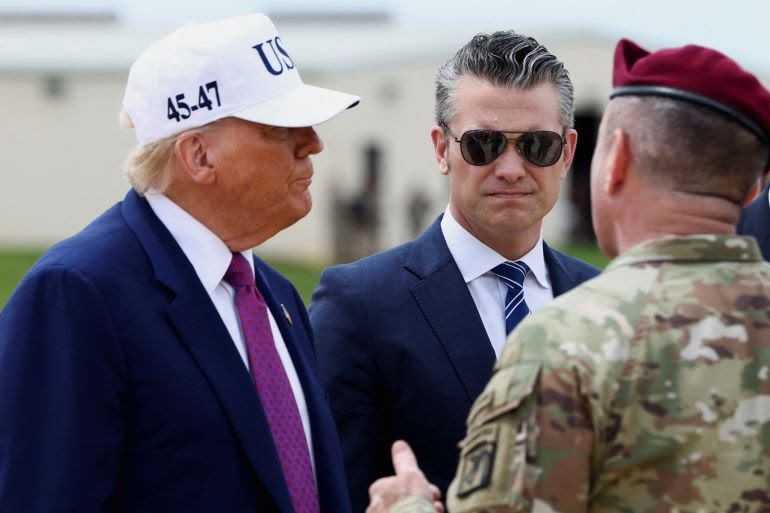The United States has begun evacuating diplomatic and non-essential personnel from several Middle Eastern countries in response to escalating tensions across the region, officials confirmed on Wednesday. The precautionary move highlights Washington’s growing concern over the potential for wider conflict as regional hostilities intensify.
According to U.S. State Department officials, the decision follows a series of intelligence assessments indicating increased threats to American personnel and facilities. The evacuation includes staff from embassies and consulates in Iraq, Lebanon, and parts of the Gulf region, although the specific locations and numbers remain classified for security reasons.
“This is a prudent step given the volatile situation in the region,” a U.S. official told reporters. “We are acting out of an abundance of caution to safeguard our people while continuing diplomatic operations as needed.”
Tensions have steadily worsened across the Middle East in recent weeks amid growing fears of conflict between Israel and Iran, persistent instability in Syria and Iraq, and rising attacks by Iranian-aligned militias. The situation has been further inflamed by U.S. military deployments and Israeli airstrikes targeting weapons depots and militia positions.
American officials have said that there are no current plans for a broader military withdrawal. However, the temporary drawdown reflects serious concern that U.S. assets could become targets in a rapidly shifting security environment.
In Iraq, rocket and drone attacks have targeted American bases and diplomatic sites with increasing frequency. Several attacks have been attributed to Kataib Hezbollah and other Iran-backed groups, raising fears of another cycle of retaliation. The U.S. embassy in Baghdad has already reduced staff, and operations have been scaled back in Erbil and Basra as well.
Meanwhile in Lebanon, security sources say Hezbollah has increased its mobilization near the Israeli border, prompting Israeli warnings of possible pre-emptive strikes. The fragile ceasefire in southern Lebanon remains under pressure, and Washington is reportedly concerned about the safety of personnel stationed in Beirut and elsewhere.
In the Gulf, heightened naval activity and Iranian warnings about U.S. and Israeli surveillance flights have added to regional uncertainty. While American forces remain stationed in Qatar, Bahrain, and the United Arab Emirates, the Pentagon has increased protective measures, including the deployment of additional Patriot missile batteries and naval escorts for key vessels.
Experts suggest the U.S. evacuation signals a shift toward crisis posture rather than routine precaution. “This isn’t just about one flashpoint. The whole region is a tinderbox,” said Dina Esfandiary, a senior adviser at the International Crisis Group. “The U.S. is trying to minimize exposure without losing influence.”
The Biden administration has so far avoided directly confirming reports of intelligence pointing to imminent threats. However, sources close to the White House suggest that the decision to evacuate was made after a classified assessment by U.S. Central Command (CENTCOM) identified coordinated threats involving multiple actors aligned with Iran.
State Department spokesperson Matthew Miller stated, “The safety and security of our personnel remains our highest priority. We are adjusting our posture in response to credible threats while continuing our diplomatic mission.”
The move also comes amid stalled negotiations between the U.S. and Iran over nuclear and regional issues. With no clear progress on reviving the 2015 nuclear deal, tensions have mounted as both sides exchange accusations and proxies escalate their operations on the ground.
Israel has continued its campaign of targeted strikes in Syria and Lebanon, with officials insisting they will not allow Iran to entrench itself militarily near its borders. Iranian leaders, meanwhile, have warned of “consequences” if U.S. or Israeli actions escalate further.
Regional allies, including Jordan and Egypt, have urged restraint and emphasized the need for renewed diplomacy. The United Nations has also called for de-escalation, warning that the region risks slipping into uncontrolled conflict if current trends continue.
For now, Washington’s focus appears to be on safeguarding its personnel and preparing for further instability. While the evacuation does not signal a retreat, it underlines how precarious the regional situation has become—and how seriously the U.S. is taking the risks.
Source: Al Jazeera



